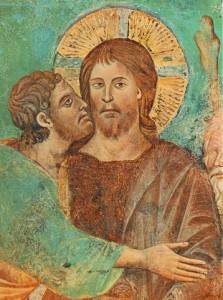Too often, a stress on the centrality of the incarnation is dismissed, by liberals and conservatives alike and without clear argument, as “Barthian” or “Christomonist,” thereby giving them permission to function as epistemological Arians.[1]
 What do Alan and Andrew Torrance mean: ‘epistemological Arians?’ They are simply noting that if there is some type of general independent free-floating ontological knowledge of God without being radically grounded in God’s own Self-revelation in the Son, the Logos of God, Jesus Christ, that in fact such knowledge would be something that is finally subordinate to God; something that was abstract and a thing that once was not but came to be, as that sparkled in the minds of a pure and abstract humanity. Abstract, because humanity’s knowledge of God would come epistemologically prior to God’s ontology as Father, Son, and Holy Spirit (thus artificially implicating God’s ontology by imposing an abstract human and thus epistemological procrustean bed on God). That is to say, an epistemological Arianism operates from the notion that a knowledge of “Godness” can be conjured, a more accurate knowledge that is, without first encountering said knowledge through the reconciling and revelational work of God in Christ for the world.
What do Alan and Andrew Torrance mean: ‘epistemological Arians?’ They are simply noting that if there is some type of general independent free-floating ontological knowledge of God without being radically grounded in God’s own Self-revelation in the Son, the Logos of God, Jesus Christ, that in fact such knowledge would be something that is finally subordinate to God; something that was abstract and a thing that once was not but came to be, as that sparkled in the minds of a pure and abstract humanity. Abstract, because humanity’s knowledge of God would come epistemologically prior to God’s ontology as Father, Son, and Holy Spirit (thus artificially implicating God’s ontology by imposing an abstract human and thus epistemological procrustean bed on God). That is to say, an epistemological Arianism operates from the notion that a knowledge of “Godness” can be conjured, a more accurate knowledge that is, without first encountering said knowledge through the reconciling and revelational work of God in Christ for the world.
The moral: Don’t be an epistemological Arian. (it is sort of heretical and such)
[1] Alan J. Torrance and Andrew B. Torrance, Beyond Immanence: The Theological Vision of Kierkegaard and Barth (Grand Rapids, Michigan: William B. Eerdmans Publishing Company, 2023), 153.